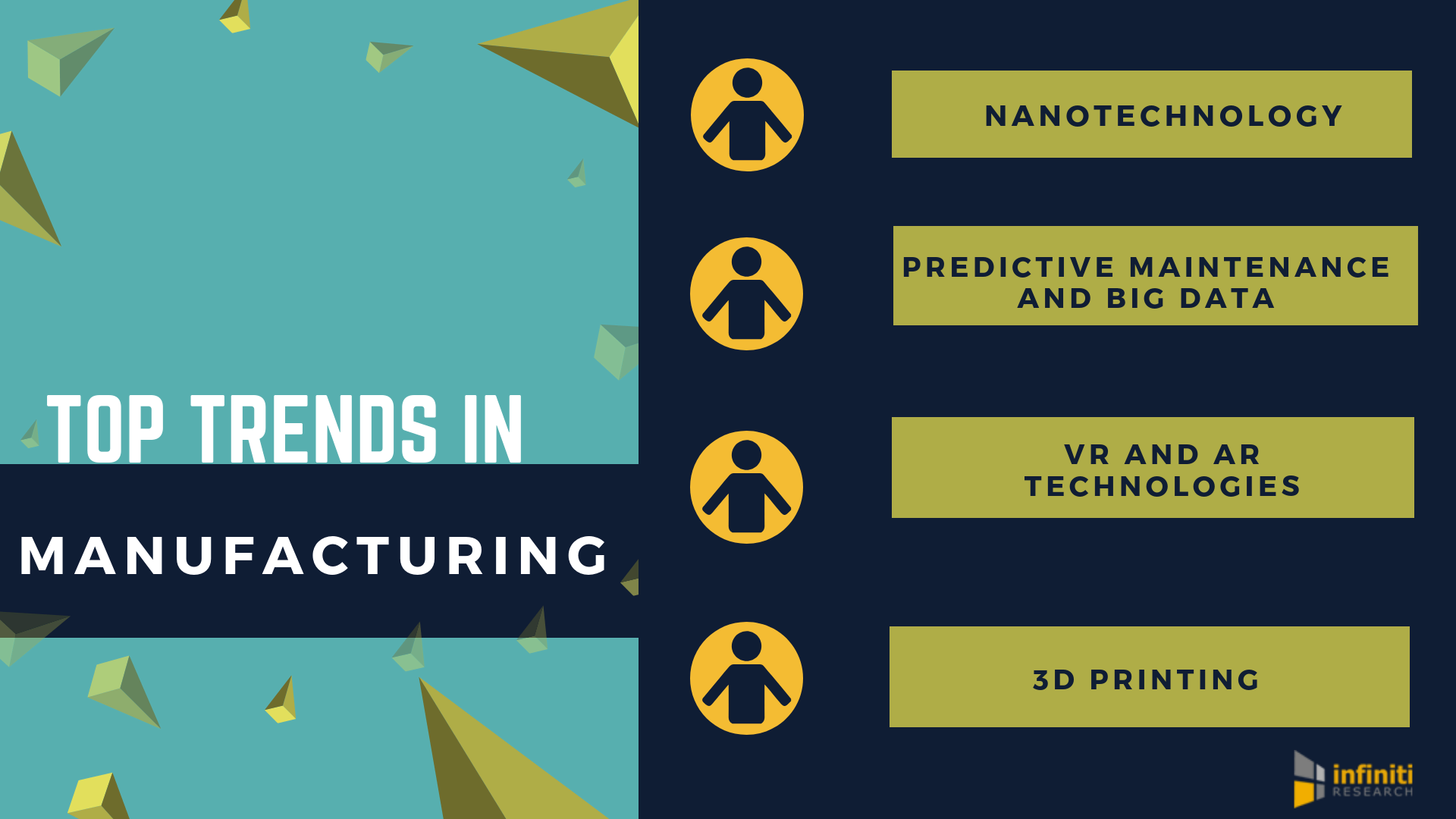The shifts in consumer demand coupled with the changing economics of production and distribution are compelling manufacturing companies to explore radically new ways of creating and capturing value. In fact, manufacturing is no longer limited to simply making physical products. Modern customers demand personalization and customization in their products. The new age industrial revolution also termed as industry 4.0 is powered by innovative technologies such as smart manufacturing, robotics, artificial intelligence and the Internet of Things (IoT). These technologies are expected to be major driving forces in the future of manufacturing. Furthermore, today most industries are increasingly becoming automated and software driven, reducing the human intervention involved. The application of advanced technologies such as nanotechnology, cloud computing and (IoT) is turning tables for manufacturers in ways unimaginable a few decades ago.
Future of manufacturing
Nanotechnology
Aerospace and biomedical sectors were the first industries to reap the benefits of nanotechnology. However, this technology has slowly made its way into the manufacturing industry, promising to be a prominent resource in the future of manufacturing. Manufacturing companies are using nanotechnology to manufacture lightweight stronger materials for boats, sporting equipment, and auto parts. It is also used in the production of personal care items such as eyeglasses. This technology is believed to be of a significant importance in the future of manufacturing.
Predictive maintenance and big data
Measuring big data in real-time to improving productivity and efficiency will go mainstream in the future of manufacturing. With the help of predictive maintenance technology, manufacturing companies can predict snags and defects and thus cut downtime and costs. The future of manufacturing will witness big data and predictive maintenance in various aspects of the factory.
Leveraging supply chain
Delivering more value to the customers than the competitors is the key to sustain in the future of manufacturing. While pricing is extremely important, savvy players in the manufacturing industry will continue to distance themselves from price wars by leveraging new technology that simplifies supply chain management. This, in turn, would deliver many competitive benefits that include – being able to operate your business more efficiently, more visibility and control over inventory, reduction of operational costs, and improved customer satisfaction and retention.
VR and AR in the future of manufacturing
Advanced technologies such as AR and VR are expected to make a mutually benefitting relationship between man and machine in the manufacturing industry. VR technology can be used to step up the future of manufacturing by interfacing seamlessly with computer-aided designs. With the help of VR, product developers can quickly make modifications and additions to products during the product design stage before they go into modeling and manufacturing processes. AR and VR technologies can also decrease inspection time and assist in detecting errors in addition to improving workers’ sight line, which enables them to complete tasks faster. For instance, by using AR devices such as electronic glasses or goggles, computer-generated graphics can be placed in a worker’s field of vision that provides him with real-time help when it comes to performing a task.
3D printing
3D printing can ensure less expensive and faster production in the future of manufacturing. Rapid prototyping in 3D printing is a highly cost-effective way for product designers to test and troubleshoot their products. In addition, it enables manufacturing companies to produce items on demand rather than manufacturing and warehousing them beforehand. Also, the 3D printing is also playing a great role in transforming the expensive and time-consuming process of tooling for manufacturers. 3D printing enables tooling to be cost-effectively completed on-site, in days and has already been embraced by the automotive and aerospace manufacturing industries.




